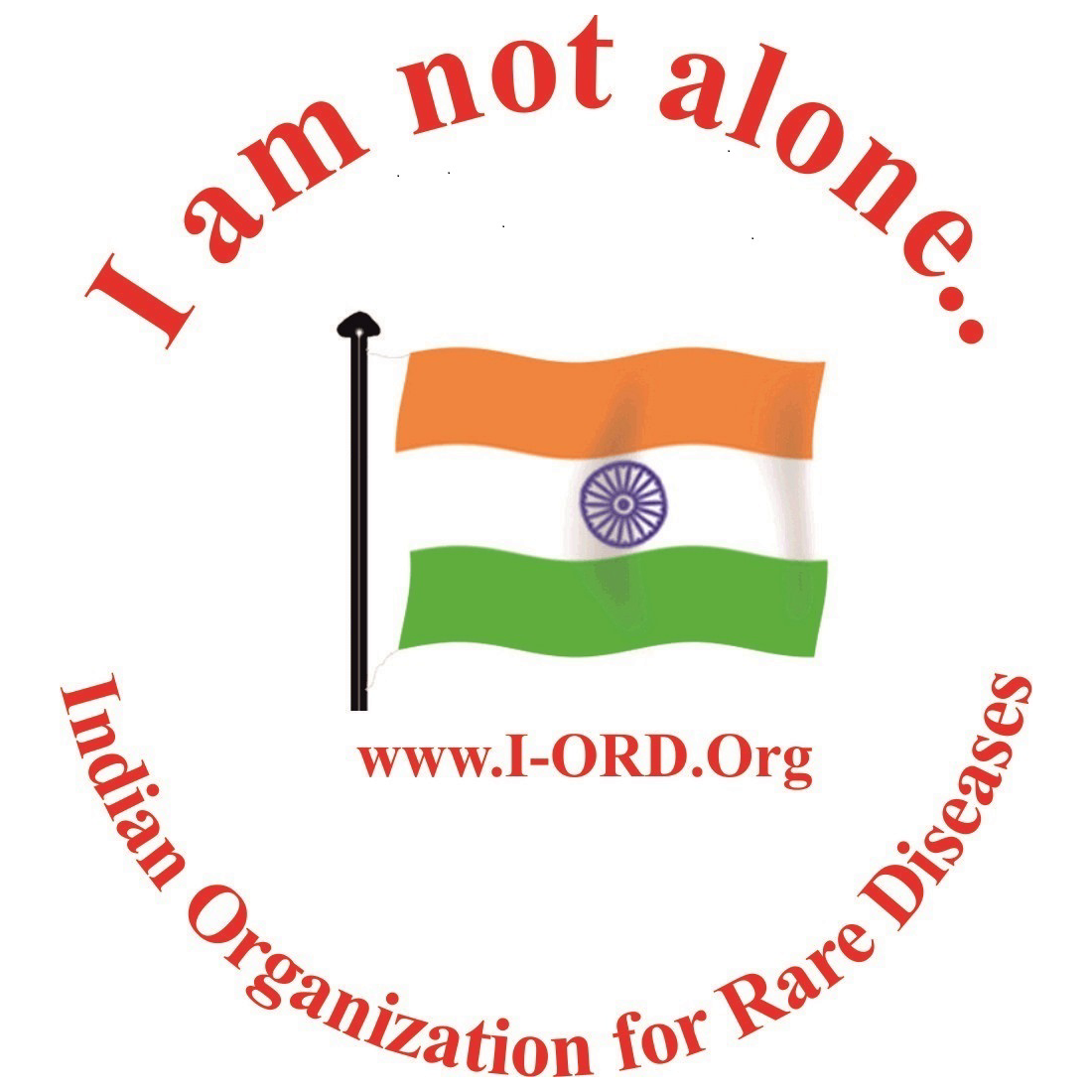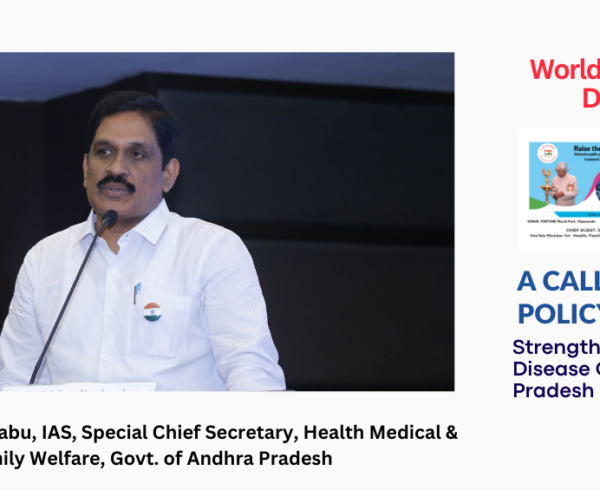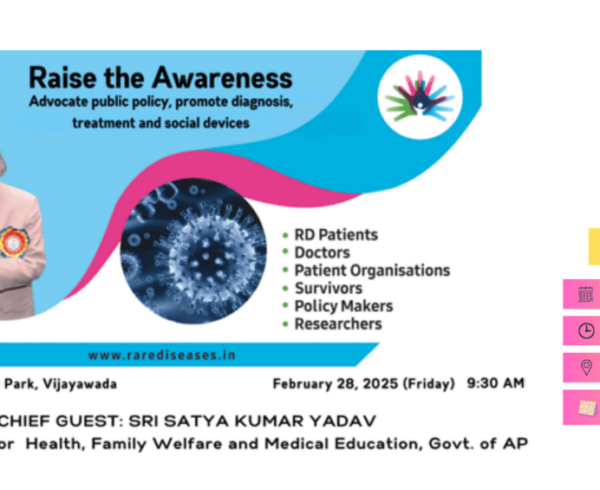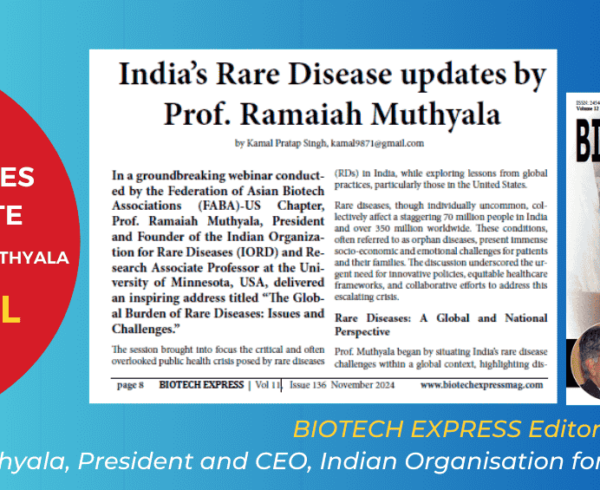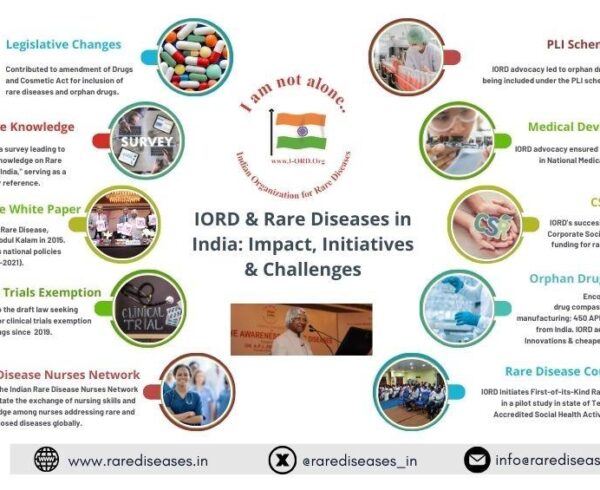India among 41 Member States who co-sponsored the Resolution
Geneva, 24 May 2025 – At the Seventy-eighth World Health Assembly (WHA) in Geneva, Member States unanimously adopted the landmark resolution “Rare Diseases: A Global Health Priority for Equity and Inclusion,” co-sponsored by India, Egypt, Spain and 38 others.
The resolution directs WHO Director-General Dr. Tedros Adhanom Ghebreyesus to develop, in consultation with Member States and patient organizations, a comprehensive ten-year Global Action Plan—due at WHA81 in 2028—to accelerate timely diagnosis, treatment access and integrated care for the 300 million people living with over 7 000 rare diseases worldwide. See the full text here.
Patient-advocacy groups have welcomed the resolution’s emphasis on telemedicine and digital registries—initiatives that promise faster specialist referrals and virtual support networks for communities isolated by rarity and stigma. Families frequently endure diagnostic odysseys of five years or more, incurring catastrophic healthcare costs and emotional strain.
In response to the call by Rare Diseases International, 41 Member States — including India — co-sponsored the resolution, with Egypt and Spain playing key leadership roles. Additionally, 275 civil society organizations including Indian Organisation for Rare Diseases (IORD) united in support of the initiative.
In consultation with UN Member States, the resolution urged the WHA to collaborate with non-governmental organizations, including patients’ organizations, academic institutions, and experts in rare diseases to draft a comprehensive draft global action plan for rare diseases covering a 10-year period.
The plan will include measurable indicators, best-practice guidelines for integrating rare diseases into primary care, and capacity-building programs for regional networks.
The resolution urged the WHA to come up with strategies for strengthening data collection, research, and surveillance on rare diseases, with a view to enhancing understanding and enabling timely and confirmed early identification—including through screening, diagnosis, and treatment—implemented in collaboration with the national authorities of Member States.
Importance of ICD-11 & Orpha Codes
The integration of ICD-11 and ORPHA codes plays a pivotal role in enhancing the identification, documentation, and management of rare diseases globally. ICD-11 encompasses approximately 5,500 rare diseases, each with unique identifiers, facilitating detailed and standardized documentation. This was recommended by the World Health Assembly Executive Board on Feb 4, 2025.
It may be recalled that the resolution adopted at the 78th World Health Assembly builds upon the United Nations General Assembly resolution titled “Addressing the Challenges of Persons Living with a Rare Disease and Their Families” at its 76th session dated 16 December 2021.
Key Highlights:
- Progress reports scheduled at WHA79 (2026), WHA80 (2028) and final evaluation by 2030.
- Develop a comprehensive 10-year draft global action plan for rare diseases, aligned with WHO’s Fourteenth General Programme of Work (2025–2028), to be presented at the 81st World Health Assembly (2028).
- Map existing WHO standards, protocols, and guidelines on rare diseases.
- Identify digital innovation (e.g., AI, e-health) to enhance diagnosis and treatment.
- Launch a dedicated workstream to promote Universal Health Coverage (UHC) for persons living with rare diseases.
- Identify and support international centres of excellence for clinical clustering, peer-to-peer medical exchange, and cross-border collaboration.
- Support creation of registries to aid in screening, monitoring, and managing rare diseases.
- Provide technical support for national policies & strategies addressing medical, social, & financial aspects of rare disease care.
Rare Disease Resolutions: Key Milestones
- Addressing the challenges of persons living with a rare disease and their families. Resolution adopted by the General Assembly Dated 16 December 2021
- Rare diseases: a global health priority for equity and inclusion – Agenda item 156th session WHO Executive Board Dated 4 February 2025
- General Assembly on the prevention and control of non communicable diseases 7th WHA Dated 27 April 2022
- Strengthening clinical trials for rare diseases, 75th World Health Assembly, 27 May 22
